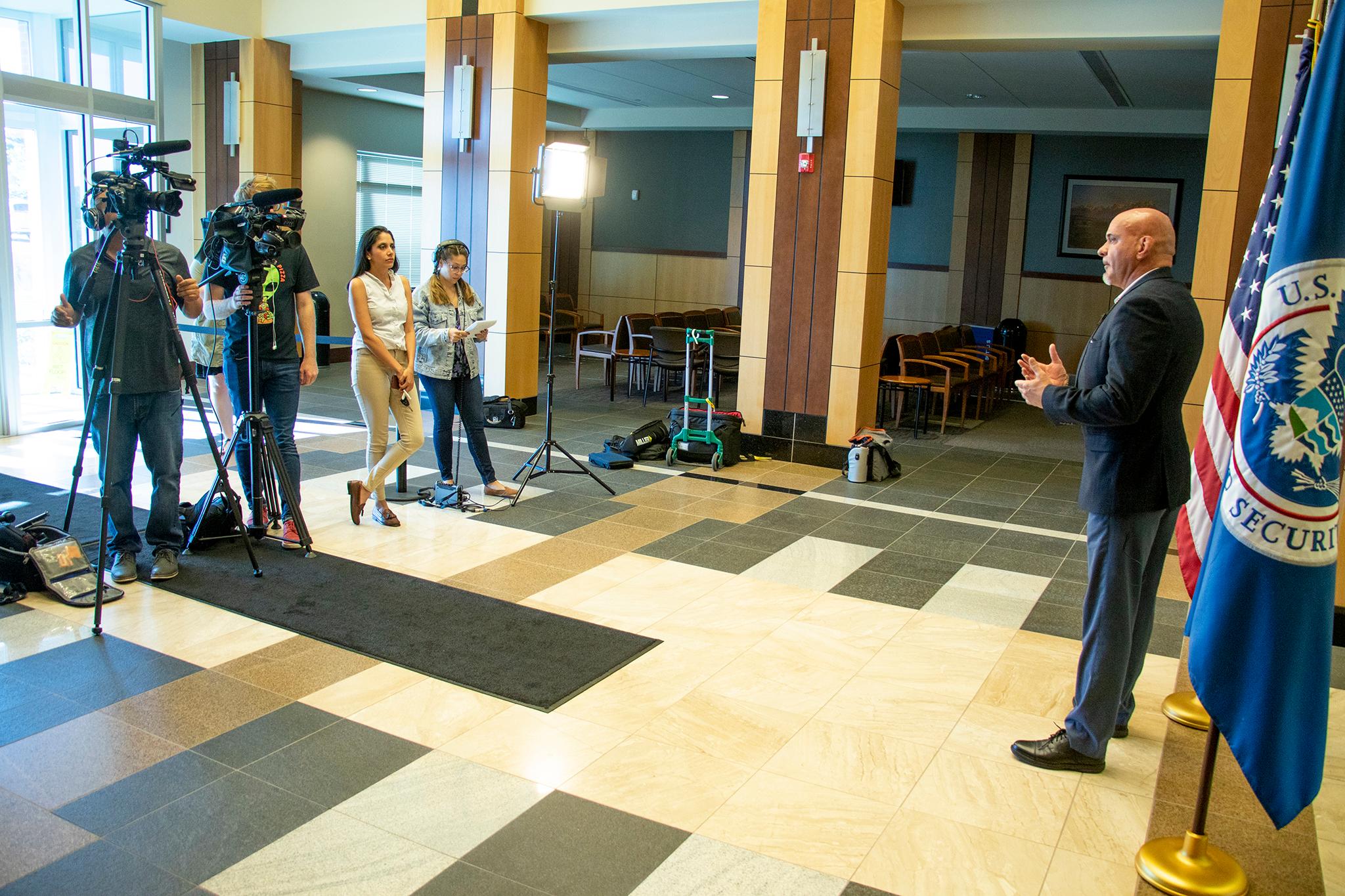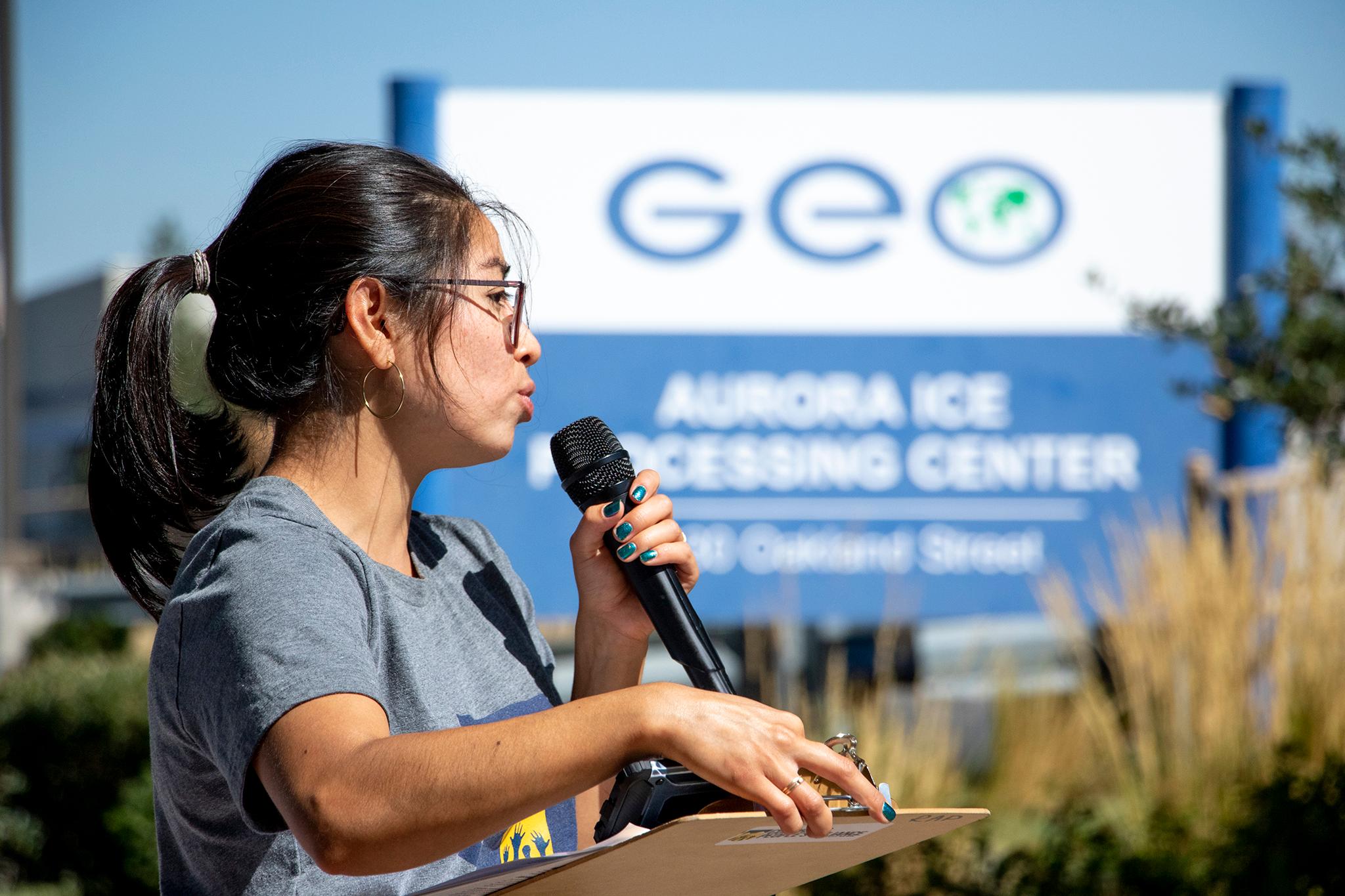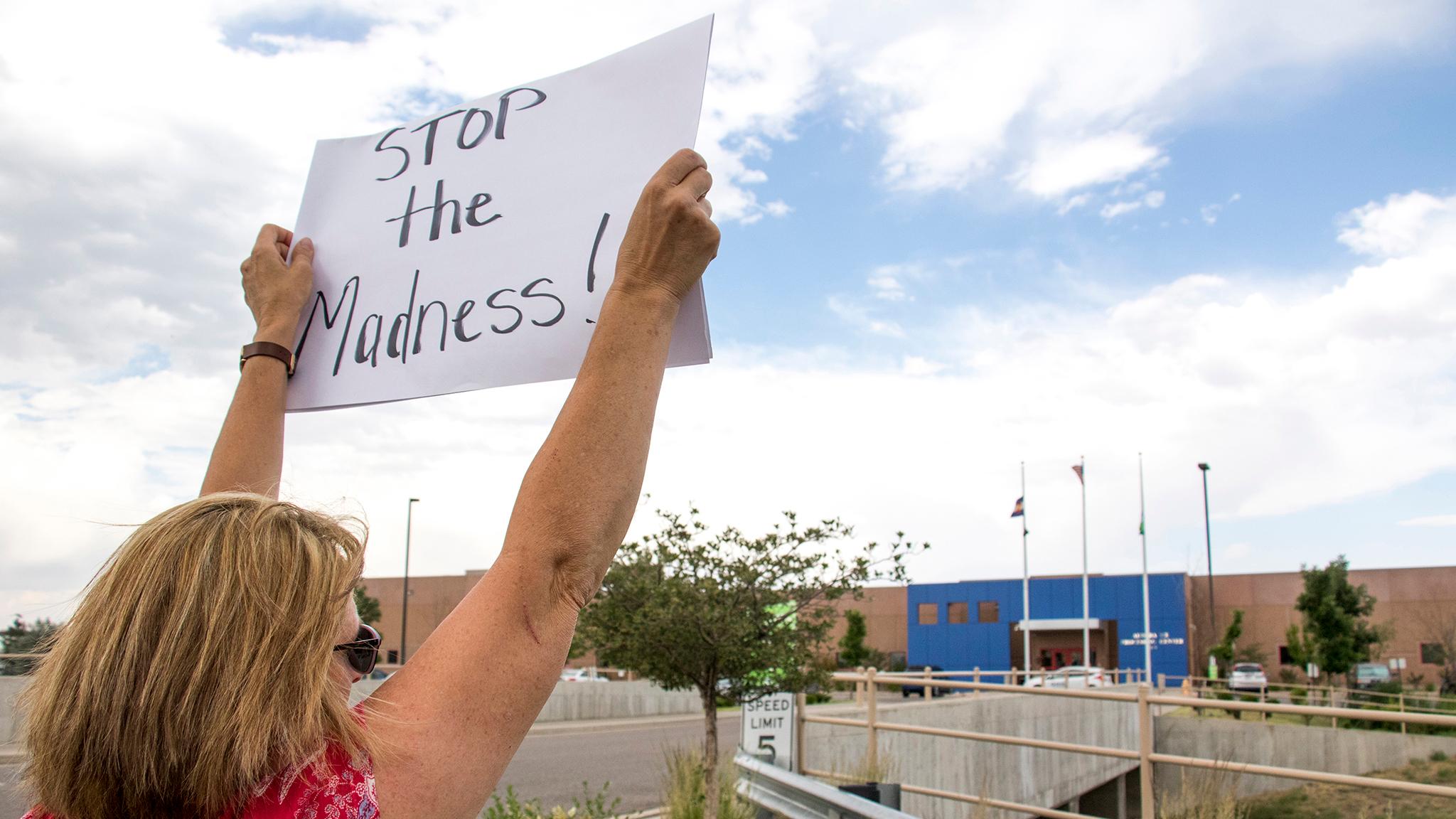This morning, the American Civil Liberties Union (ACLU) of Colorado released a report slamming Aurora's private immigration detention center, operated by GEO Group and contracted by U.S. Immigration and Customs Enforcement (ICE).
The facility originally opened in 1987. It houses people detained at the border, who are waiting for decisions on claims for asylum, and noncitizens living in the U.S., who were arrested for crimes or administrative infractions.
"Having come to the U.S. in search of a better life, they are confined without access to sufficient medical care, adequate nutrition, legal resources or in many cases basic human decency," the report's summary reads. "Regardless of these deficiencies, GEO posted a net income of $33.4 million in the fourth quarter of 2018, and is valued at over $2.3 billion today."
The facility has become a target for activists in recent years as the country's immigration debate has intensified. Earlier this year, an "annex" was opened for the first time since 2002 to house record numbers of people detained at the border.
The ACLU's investigation, which was compiled after "multiple" visits and "numerous" interviews, highlights a heart attack death due to "incompetence," a man whose leg was amputated after complaints of bedsores were "ignored," a man whose injuries went untreated after he was attacked by other detainees, a man who was told by a psychiatrist that "no one cared about him and that he should sign voluntary deportation papers," a "botched tooth extraction" and a man who was denied access to hearing aids, among others.
Central to the report was the death of Kamyar Samimi, an Iranian man who died in December 2017, just over two weeks after he was arrested at his home: "Mr. Samimi's tragic death reflects the atrocious conditions at ACDF."
ICE's Office of Professional Responsibility conducted its own investigation after Samimi's death. Rocky Mountain PBS obtained the report and published it last May. It found Samimi did not receive a mandatory, comprehensive health assessment during his time in custody. The center's medical wing, it goes on to say, "had vacancies in key medical personnel ... for longer than six months."
According to ICE's findings, Samimi had been on "long-term use of high-dose methadone" before he was arrested, and he was exhibiting withdrawal symptoms when he arrived.
"Although Samimi's observed condition indicated a need for withdrawal medications, nurses administered less than half of the doses ordered," it reads. The Denver Contract Detention Facility's "physician never physically examined the detainee."
"All officers interviewed observed significant deterioration in Samimi's condition, especially during the 48 hours prior to his death, and expressed concern about the care provided by nursing staff," ICE's assessment continues.
In recent months, local ICE officials have broken with a tradition of silence and have discussed concerns about their enforcement and GEO's detention center with reporters. They also allowed journalists and camera operators to tour the facility.
"When I came up through the ranks, you did not speak to the media at all," John Fabbricatore, acting director of ICE's field office in Centennial, told Denverite at a press meeting last Saturday. "I have nothing to hide, so why should I be afraid to talk to you?"

He told the small group of reporters that GEO's facility currently has one medical doctor, two physicians assistants and multiple registered nurses serving some 1,300 people in custody there. They are working to hire another doctor as a result of ICE's internal investigation.
"We have human beings working in the medical services there. If a mistake is made, we want to look at it, we want to improve and we want to make it better," he told reporters over the weekend. "It's important for us to have inspections, there are going to be mistakes."
Detainees at the facility have been quarantined in the last year for outbreaks of mumps and chickenpox.
But medical care is only one complaint from the ACLU's report and from activists groups who have increased pressure on ICE and GEO.
The ACLU's report also alleges poor access to food and retaliation against detainees who raise concerns.
"The food was either expired or contaminated," Elias Salgado, an immigrant from Mexico, told the ACLU. "My stomach was bad all the time. But the officers would get mad if I complained."
He went on to say staff would sometimes withhold food or recreation time if they heard him complaining about the facility while on the phone with his wife.
Miguel Angel Avila Arce, also a native Mexican, told the ACLU he lost about 20 pounds since arriving at the GEO processing center.
The food, he said: "It's not good ... It's the same thing over and over. It looks ugly. I don't want to touch the food because of what I've heard."
"He was living on beans, rice and bologna sandwiches. There were no vegetables or fruit, just a sugary drink," the ACLU's report says. "Many times, he said he found worms in his food but when he told the guards he said they just laughed and called it extra protein."
Ana Rodriguez works with the Colorado People's Alliance (COPA) and led a protest outside of the facility last Friday.
"This morning, we heard from somebody who was detained yesterday," she told Denverite. "He spent an entire day in the facility and only got one meal. We've heard from folks who are saying they've run out of food more frequently. What they get told is: 'Well, we don't have any more food. Tough luck.'"

She called Fabbricatore's new tact with media "faux transparency," saying it's a "defense mechanism" meant to mislead the public and downplay serious oversight.
"They're showing you what they want to show you," she said.
ICE's attempt to control the narrative, she added, is happening in parallel with intensifying activism. Thursday evening, COPA is planning to lead a protest outside of the home of the Aurora center's warden, Johnny Choate. They've also lobbied Aurora's Chamber of Commerce to oust Choate from its board.
On Saturday morning, a group is planning to march from Denver's City Park all the way to the Aurora facility in protest of "white supremacist violence." New fences have been erected around the detention center ahead of future actions and in response to a massive action there in July when a faction of protesters removed flags from poles in front of the building.
So, where do we go from here?
Mark Silverstein, ACLU Colorado's legal director, told Denverite that many people detained in Aurora are not criminals, they're simply going through the United States' "draconian" immigration process.
"These facilities are as bad as prisons, but the people that are in immigration detention are not convicted of crime, they're not even accused of crime," he said. "Why is it OK to lock people up simply because they are accused of violating a civil administrative restriction?"
After a tour of the facility, Fabbricatore spoke to this point.
"ICE is doing exactly what the law says. If Congress doesn't want us to house asylees, change the law," he said. "It is federal law."
Congress has long been in gridlock when it comes to immigration policy. ACLU's report recommends some actions that could be done at the state or local levels in the meantime.
It says these private institutions need more accountability and cites an ordinance in New Mexico that created an advisory board to oversee all detentions in Bernalillo County.
It also suggests divesting from private detention operators.
"The GEO Group receives more taxpayer dollars for immigration detention than any other ICE contractor," it says, citing investments from the Colorado Public Employees' Retirement Association.
Though Denver's recent decision to cancel contracts with GEO and CoreCivic pertained only to halfway houses in the city, that vote was made in the spirit of this second recommendation.
The report also recommends "freeing immigrants from detention facilities," increasing opportunities to legal representation and further limiting municipalities' cooperation with ICE.
Silverstein said the ACLU's report is "addressed to the public." He hopes sharing more of these kinds of stories will shift public opinion, which could result in changes at the congressional level.
"Historically, the law bends to accommodate peoples' sense of justice," he said.
"It's only because somebody died that ICE has generated all of these documents that allow us to get a little peek into that world," he said. "When somebody almost dies, you don't have that, and we don't get a glimpse because it is not a transparent institution."












